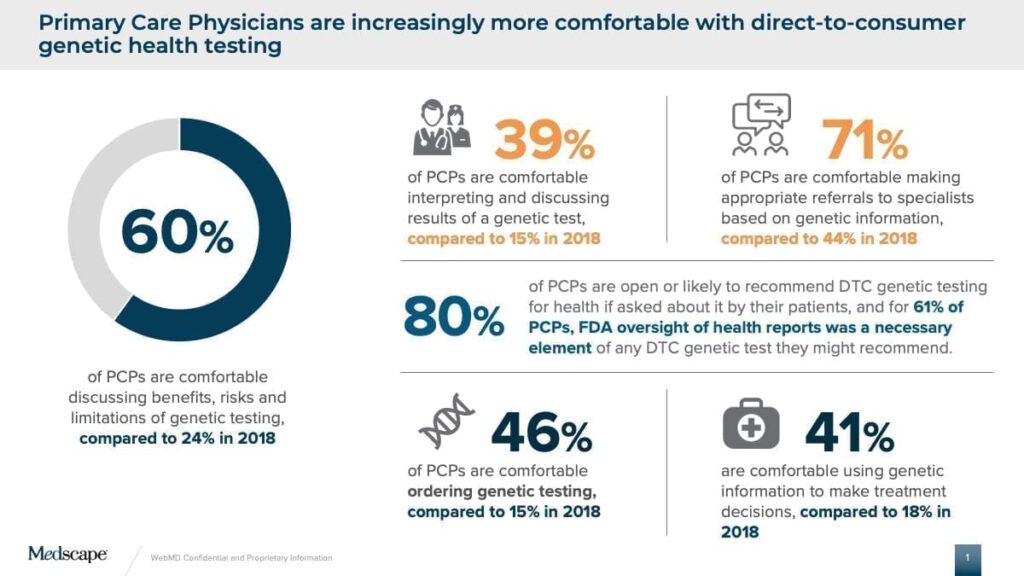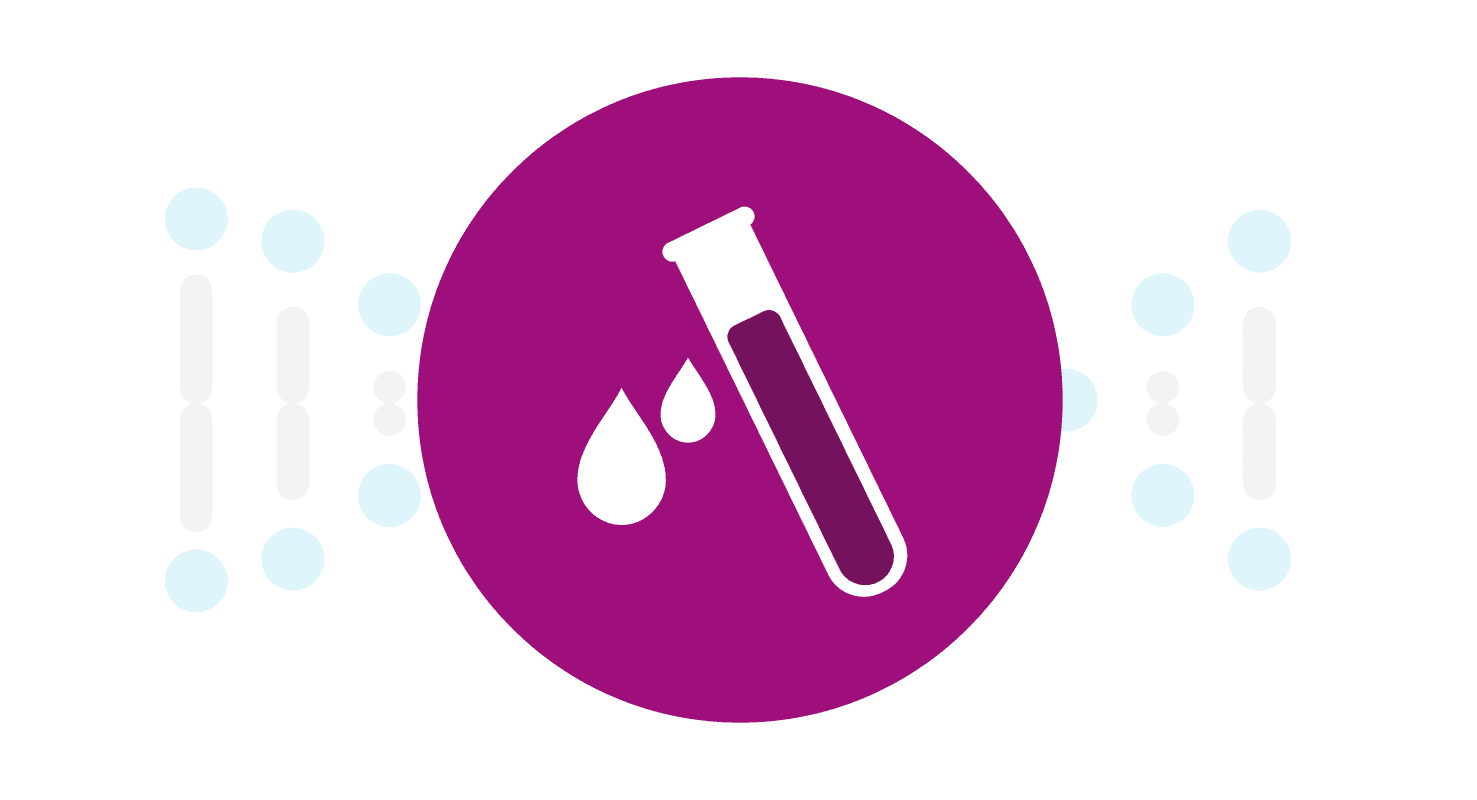In the last two years as interest in consumer DNA testing continues to remain strong, primary care physicians have become increasingly comfortable with discussing these results with their patients, a new study shows.
“This study highlights a significant shift in how primary care physicians view direct-to-consumer genetic health testing,” said L. Okey Onyejekwe Jr., MD, JD, Vice President of Healthcare Operations and Medical Affairs at 23andMe.
The evolution of views has come as consumer interest in DNA testing remains strong.
“In just two year’s time, the data show primary care physicians are much more accepting, and in some cases wholeheartedly embracing this type of testing, especially tests that include health reports with FDA oversight,” Dr. Onyejekwe said. “As more consumers turn to direct-to-consumer genetic testing for health insights into their genome, it’s encouraging to see that primary care physicians are much more open to patients bringing their test results into the clinic for further discussion and potential follow up testing when warranted.”

Discussing Results
According to the study — done by Medscape and in collaboration with 23andMe — primary care physicians’ comfort level in discussing DNA testing results with patients has more than doubled since 2018.
For this study, researchers surveyed 1,000 primary care physicians to gauge their comfort with genetic testing overall, including assessing attitudes toward direct-to-consumer genetic health testing specifically. The results were then compared to those of a similar survey conducted in 2018. The study found that when compared to two years ago, physicians were twice as likely to be comfortable discussing the benefits, risks, and limitations of genetic health testing, as well as interpreting and discussing results of a genetic test.
Making Recommendations
Beyond that, the report also found that 80 percent of primary care physicians are open or likely to recommend direct-to-consumer genetic testing for health if asked about it by their patients, and for 61 percent of primary care physicians, FDA oversight of health reports was a necessary element of any direct-to-consumer genetic test they might recommend.
“The shift in the primary care community’s point of view on genetic testing over a relatively short period of time is striking, and points to the test’s results having greater utility and impact inpatient care,” said Hansa Bhargava, M.D., Medscape Senior Medical Director. “We are pleased that we could contribute to increasing awareness of the role of genetic testing in the primary care environment.”
Recommending Next Steps
When it comes to all testing, not just direct-to-consumer tests, 71 percent of primary care physicians said they are comfortable making appropriate referrals to specialists based on genetic information. In 2018, just 44 percent said they were comfortable making such recommendations. Further, 46 percent of the physicians surveyed said they are comfortable ordering genetic testing, which is more than four times as many as 2018. Finally, 41 percent of those surveyed said they are comfortable using genetic information to make treatment decisions, a two-fold increase over 2018.
The survey indicates a sea change in how primary care physicians perceive direct-to-consumer genetic testing over the last decade and a half.
Changes Over Time
Just four years ago, a study by the Impact of Personal Genomics Study Group found that many consumers said their physicians were skeptical of direct-to-consumer genetic testing, about 11 percent. The study found that about 22 percent of patients said their physicians were uninterested in their results, and another 22 percent simply didn’t understand the results or lacked knowledge of genetic testing.
In 2019, researchers at Duke University’s Center for Applied Genomics and Precision Medicine and at 23andMe identified a need for more genetics training for primary care physicians. The study went on to show that after completing direct-to-consumer testing themselves, many physicians felt much more confident and comfortable discussing direct-to-consumer testing.
23andMe has dedicated resources to support Healthcare Professionals to assist them in becoming familiar with its reports and direct-to-consumer genetic testing for health.




